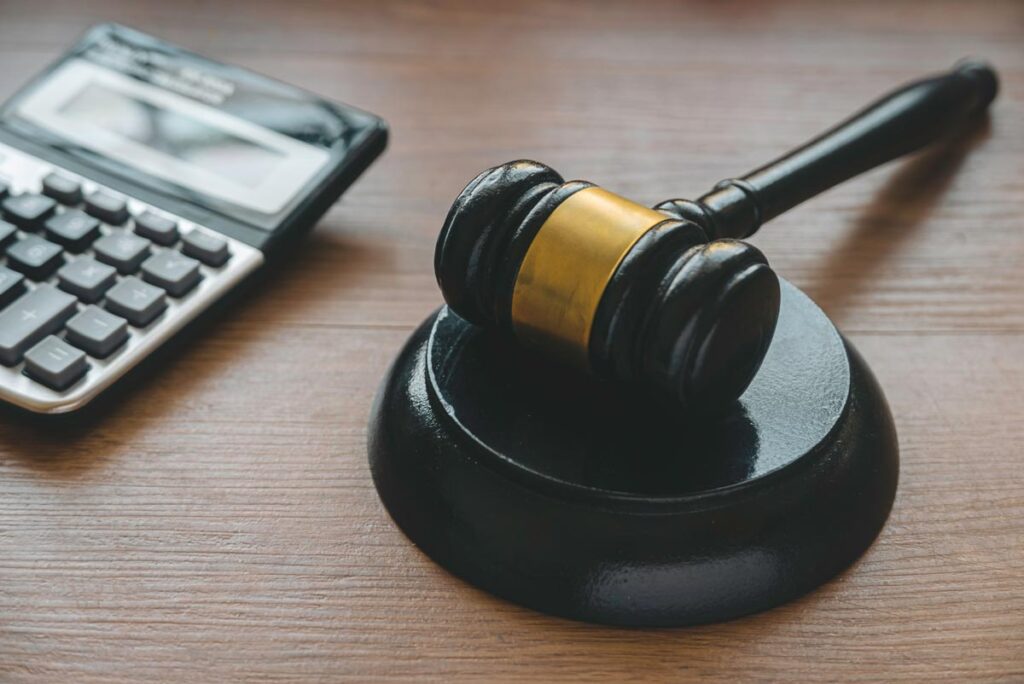
Summary:
Co-signing a bail bond involves significant financial responsibility, including ensuring the defendant appears in court and paying premiums. Co-signers can revoke the bond but are not liable for jail time unless violating terms. No co-signer bonds are available for financially stable defendants.
Main Points
- Role of Co-Signer: Ensures the defendant appears in court; financially liable if they don’t.
- Responsibilities: Paying premiums and ensuring court appearances.
- Financial Liability: Covers full bail amount and associated fees if defendant skips court.
- Revocation: Co-signers can revoke a bond if concerned about the defendant’s court attendance.
- No Jail for Co-Signers: Unless terms are violated or they help the defendant flee.
- No Co-Signer Bonds: Available for defendants with strong financial histories.
Bail bonds are a tricky business. Most people don’t know how they work, how to get one, or even how much they cost.
Today, we will discuss one important component of bail bonds: Co-signing. By the end of this post, you should know everything you need to know about setting up and becoming liable for a bail bond.
What is a Co-Signer on a Bail Bond?
In simple terms, a bail bond co-signer promises that the defendant — the person who receives the bail bond — will appear in court.
If the defendant doesn’t appear, the co-signer is then responsible for paying the full amount of the bail. The co-signer also has to pay fines and penalties associated with a defendant no-showing a court date.
What happens if someone jumps bail and you’re the co-signer? You could be on the hook for a very large financial responsibility.
Do you need a co-signer for a bail bond? No, co-signers are not required for every bail bond. However, co-signers are common because defendants often need someone to help cover the expense of a bail bond.
Bail Bond Co-Signer Requirements & Responsibilities
A co-signer, or indemnitor, has a number of responsibilities. To begin with, these are the people who contact a bail agency and coordinate the bond to make sure a defendant gets out of jail. When you do this, you will have to do a number of things.
Paying the Premium
First, you are responsible for paying the premium on a bail bond. Typically, a premium is a payment that equals 10% of the bond amount. This can be looked at as a service charge, or down payment, that is nonrefundable.
It is important to note that bail bonds last a full year. If a hearing extends beyond a year, the co-signer has the choice to pay another premium equal to the first or not pay the premium, meaning the defendant will have to find another indemnitor or go back to jail.
Ensuring the Defendant Shows Up to Court

As a co-signer, or the person who puts up collateral, it will be your duty to make sure the defendant shows up in court. This is paramount, too, since a court absence may result in forfeiture. That means your collateral is put on the line to cover the full bail amount.
To ensure this doesn’t happen, a co-signer’s main responsibility is to make sure the defendant shows up in court. If the defendant does skip a court date, however, the co-signer needs to contact the bail agency and let them know where the accused is so he or she can be picked up.
If the co-signer doesn’t know, bail agencies can take steps like hiring a bounty hunter to track down the defendant.
Additional Items to Note
There are a few things co-signers need to be aware of, too. For instance, lots of bail agencies allow co-signers to put stipulations on a bond. These include examples like making sure a defendant enters a rehab program, seeks counseling, or any number of other other requirements.
Also, co-signers have the option to cancel a bond. This may be the result of additional, alleged illegal actions.
Because co-signers sign promissory notes, hence becoming financially liable for the full bail amount of a defendant, they need to make sure they go to a bail bond agency they can trust. This is just one reason Bail Hotline, one of California’s top bail agencies, has done so well in the past few years.
We have locations all over the state, with bail agents by the phone ready and willing to answer any questions or concerns you may have, and a solid reputation. So, if a time comes when you do need to co-sign a bail bond, make sure you have the right bail agency to back you up.
Contact us at one of our many offices in cities like Bakersfield, Riverside, Los Angeles, and many more.
Can a Co-Signer Revoke a Bail Bond?
Wondering how to remove yourself as a co-signer on a bond? The good news is that you have the power to reverse your decision.
A co-signer can revoke a bail bond at any time. If you feel as though the defendant will not appear in court, you can get in touch with the bail bondsman or courts and advise them of your concern and your desire to terminate the agreement.
Can a Co-Signer of a Bond Go to Jail?
No, a co-signer of a bond will not go to jail. The only time a co-signer would go to jail is if they violated the terms of the agreement or purposely tried to help the defendant flee.
In most cases, if the defendant fails to show up for court, the bail bond company will recoup the cost of the bail bond from the co-signer. The co-signer may also be required to pay additional fees, including court costs and attorney’s fees.
In other words, being a co-signer on a bail bond comes with some major financial responsibilities. However, those responsibilities don’t extend to jail time as long as the co-signer follows the law and the terms of the bail bond agreement.
If the co-signer does not have the ability to pay the bail bond company, they may surrender any collateral that was pledged as part of the bail bond agreement. Collateral may have a high value, so it’s always important to recognize the responsibility that comes with co-signing on a bail bond.
What Are No Co-Signer Bail Bonds?
No co-signer bail bonds are simply bail bonds that do not require a co-signer. These types of bonds are typically available only to defendants with strong financial histories or who have significant assets.
If you are considering a no co-signer bail bond, be sure to speak with an experienced bail bondsman to learn more about the requirements and terms of the agreement.